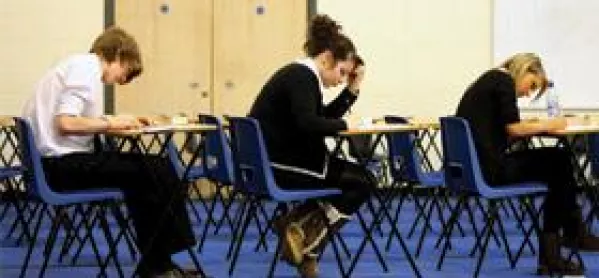Experts call for retreat on Advanced Highers

Fears have emerged over the future of the Advanced Higher, with classroom unions warning that the qualification risks being “marginalised” as schools struggle to adapt to the wider Curriculum for Excellence reforms.
The situation is expected to worsen in August, when new versions of Advanced Highers are introduced throughout Scotland at the same time as many teachers will be contending with new Highers for the first time.
The EIS teaching union warned that some schools had already dropped the Advanced Higher as a result of the changes and many more were likely to follow. Meanwhile, the NASUWT teaching union claimed the qualifications overhaul was causing “significant increases in workload and stress” for teachers.
Both unions called this week for the pressure on schools to be relieved by allowing them a transitional year in which they could offer both the old and new versions of the Advanced Higher. A similar approach was taken this year to allow the new Higher qualifications to bed in.
But education secretary Angela Constance indicated that such a move could be “disruptive” for teachers and pupils.
Advanced Highers have been steadily increasing in popularity since the qualification was introduced in 2000, reaching a record high of 22,431 entries in 2013-14. It was designed to provide a springboard to university study, encouraging the independent style of learning required in higher education.
But the low numbers of students taking less popular subjects have proved problematic for some schools, with the difficulty compounded by teacher shortages in areas such as sciences.
And the pressure on teachers is likely to increase in 2015-16. Almost half (45 per cent) of this year’s cohort of Higher candidates are taking the old version of the qualification, according to the Scottish Qualifications Authority (SQA). This means that a significant proportion of schools will have to cope with the introduction of two reformed qualifications at the same time.
“That just creates an additional workload problem,” EIS general secretary Larry Flanagan told the Scottish Parliament’s Education and Culture Committee. As a result, he said, “a lot of schools” would drop the Advanced Higher and the qualification would become “marginalised”.
Advanced Highers had already been scrapped in many schools, Mr Flanagan added, citing the example of a group of Glasgow pupils forced to attend Saturday lessons or be taught at a university because lack of interest meant the qualifications were “not viable” at their school.
Meanwhile, NASUWT general secretary Chris Keates said that teachers were reporting “significant increases in workload and stress” as a result of the reforms to the curriculum and qualifications, and that pupils were “understandably anxious about the impact of the rapid changes on their future life chances”.
She added: “Allowing schools to delay the Advanced Highers by one year would be a sensible and pragmatic decision that would support teachers and pupils in continuing to achieve the high levels of exam success we have seen in recent years.”
But Ms Constance was unconvinced by calls to run both old and new Advanced Highers next year, telling the committee: “I have not yet heard an overwhelming case that we need a dual running of Advanced Highers.We want to get the job done.”
Scottish Liberal Democrat education spokesman Liam McArthur praised the gradual phasing in of the new Highers, saying: “I cannot understand why you wouldn’t want to roll that principle out to the Advanced Highers.” A rushed introduction, Mr McArthur said, would result in pupils being treated like “guinea pigs”.
Highlands and Islands Conservative MSP Mary Scanlon said she was “worried” about a briefing given to MSPs in which parent groups had warned that students taking the old Highers this year would struggle to adapt to new Advanced Highers.
Mr Flanagan also asked the Scottish government to provide an additional pound;1 million for new textbooks and resources to help schools introduce the new qualifications. Former education secretary Michael Russell diverted pound;1.4 million to schools in 2013 during the fraught implementation of Nationals 4 and 5. Ms Constance told the committee she would give “due consideration” to the request for funds.
The overhaul of the Highers had proved to be similarly testing, Mr Flanagan said, adding that there was “no evidence coming to us from our members that the workload pressures of last year have abated in any sense”.
Robert Macmillan, acting president of the Scottish Secondary Teachers’ Association, also expressed concerns that some support materials for parents of students taking the new Highers would not be published until May, when the exams would already be under way.
Keep reading for just £1 per month
You've reached your limit of free articles this month. Subscribe for £1 per month for three months and get:
- Unlimited access to all Tes magazine content
- Exclusive subscriber-only stories
- Award-winning email newsletters



